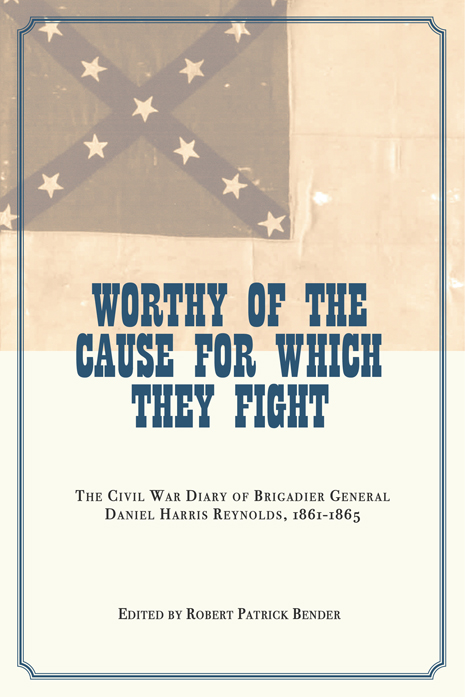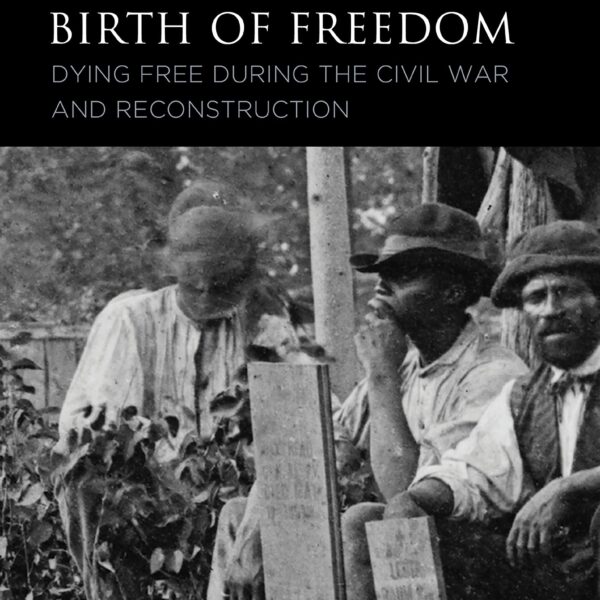Daniel Harris Reynolds won fame as a general leading Arkansas troops in the Army of Tennessee, but he was a native of Ohio, where he graduated from Ohio Wesleyan University. Despite his Yankee roots, he eagerly joined the Confederate army in 1861 and saw action at some of the major battles west of the Mississippi. When the war ended, Reynolds could say that he had lived through the battles of Wilson’s Creek, Elkhorn Tavern, Chickamauga, Atlanta, Franklin, and Bentonville. He surrendered with the remnants of Johnston’s forces in North Carolina in April 1865.
As were most men in the Rebel army, when the conflict began, Reynolds was in his twenties, unmarried, and did not own any slaves. He entered the war as a captain, but like most Americans in 1861, he had no military experience. He had his first taste of serious combat at Wilson’s Creek, where he was wounded—not by a northern soldier, but by his horse, which had pawed him in the face.
Reynolds’ diary reminds us how Arkansas was as much a western state as it was a southern one in 1861. Reynolds encountered pro-Confederate Native Americans, among them Stand Watie, whom he notes, “has a very good plantation here and several slaves” (30). In the same diary entry, he mentions an elderly white man who had a 16-year-old Cherokee wife.
Reynolds was a soldier devoted to the southern cause, but his diary depicts tensions within the Confederate army. In spring 1862, he notes how unhappy his men are about converting their unit—the 1st Arkansas Mounted Rifles—from a cavalry to infantry regiment. In June 1862, Reynolds mentions men threatening to desert because of the recent conscription law. However, by mid-June, he notes no more attempts to desert or mutiny. By August, he says that his men are “in fine spirits knowing almost to a certainty that there is a better day coming” (65).
It was with such high-spiritedness that the Confederacy invaded Union territory in late-summer 1862. Reynolds describes an enthusiastic welcome for the Rebel forces in Kentucky. He recalls being appointed military governor of Lexington, though the editor helpfully states in the notes that there is no record of that having happened. Surprisingly, though, Reynolds’ diary does not criticize Braxton Bragg’s generalship in Kentucky, or elsewhere. However, during the Kentucky invasion, Reynolds makes clear that he does not think highly of General Henry Heth, whom he believed handled the advance on Covington, Kentucky “in a very unmilitary manner” (69).
Despite the Confederate retreat from Kentucky and the Rebel defeat several months later at Murfreesboro, Reynolds’ diary does not suggest an inevitable decline in the Army of Tennessee’s fortunes after the fall and winter of 1862. Nor does his diary depict life in the Rebel ranks as one of unremitting suffering. In January 1863, Reynolds describes going to the theatre in Mobile and having eaten “plenty of fine oysters” (87)—the kinds of things Lost Cause writers did not usually mention. However, problems among the high command persisted. In spring 1863, Reynolds clashed with General William H. T. Walker and his staff. Concerning his fellow Arkansans, Reynolds says, “We know our rights and knowing dare maintain them” (94). Reynolds did not think much of General Samuel Gibbs French either, whom he thought no better than a rogue.
Many of Reynolds’ entries are brief, though his diary contains good details about soldiering in the western theatre. Reynolds’ description of the battle of Chickamauga is interesting, especially when he discusses his men’s care for wounded Yankees. They are “trying to enslave us,” he notes, “but they are human (in form at least) and we rendered them all the assistance we could” (106).
It was for his “cool and gallant” leadership that Reynolds won promotion to brigadier general in December 1863 (113). Toward the end of 1863, he was still enthusiastic about the cause, thinking the Confederacy a “beacon light to guide the oppressed of other nations” (115). African Americans would undoubtedly have contested his claim that the Confederacy was willing to assist “the oppressed.” But his words nevertheless show that even late in the war, he had faith in the Rebel mission.
Reynolds and his fellow Rebels faced their greatest test in 1864. Reynolds continued to have problems with General French, his division commander, to the point where French had him arrested for misconduct. By the spring, however, morale among Reynolds and his men was high. Confederates suffered a disaster at Atlanta, but by mid-October 1864, Reynolds amazingly notes that General Hood’s reputation is rising in the ranks. Reynolds, perhaps by then as deluded as Hood, wanted to remain on the offensive. The day after the debacle at Franklin, Reynolds writes, “I am in hopes every exertion will be made to press the enemy” (159).
Reynolds did fight on, though the war effectively ended for him at Bentonville, where he calmly describes a gruesome artillery wound that cost him a leg and killed his horse. Reynolds, however, survived his injury, which he wrote about with a stoicism that is astounding to the modern reader. After the war, Reynolds served in the Arkansas senate before Republicans forced him out of office. Unfortunately for scholars, the diary ends before Reynolds can comment on his postwar career.
Any historian interested in the Confederate soldier and the western Rebel armies in particular will want to consult this volume. Worthy of the Cause is well edited, with ample notes and a comprehensive index. However, Reynolds’ writings—as is often the case with wartime sources—often provides us with trees rather than a forest. The editor might have given more background information in the notes concerning military events. Nevertheless, Robert Patrick Bender and University of Arkansas Press have done well in adding another compelling voice in telling the story of the Civil War.
Colin Woodward is an Archivist at the Arkansas Center for History & Culture in Little Rock, Arkansas.





